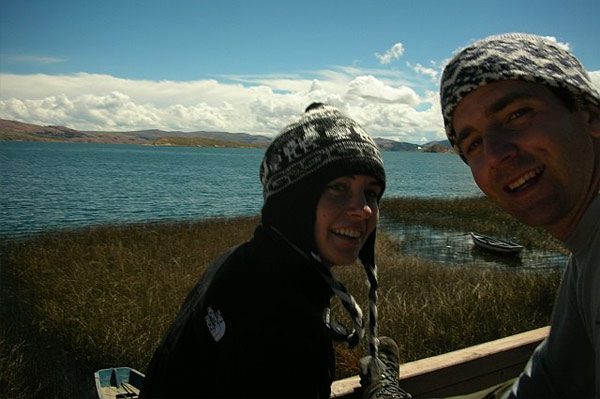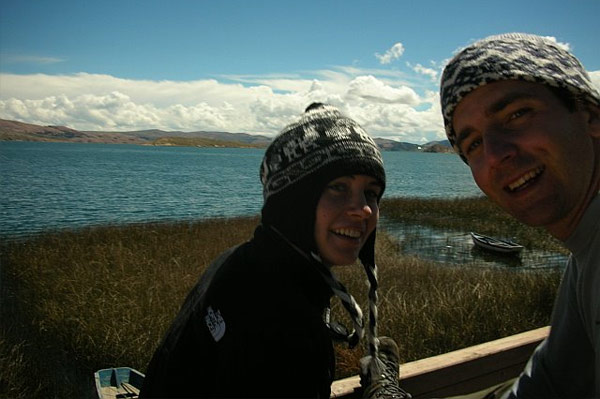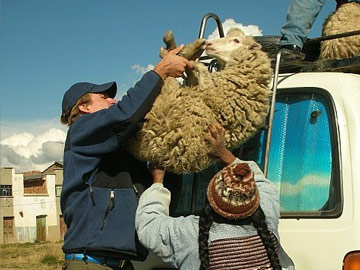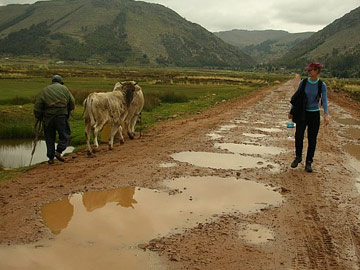
All photos by author
“HITCHHIKING IS DANGEROUS. You’re crazy!” This is what I heard repeatedly when I shared my post-wedding travel plans. In 2006, recently after my husband, Isaac, and I got married, we left for a year of travel. In South America we hitchhiked around Lake Titicaca in Peru and Bolivia. Over three days, we made our way from Puno, Peru to Copacabana, Bolivia.


